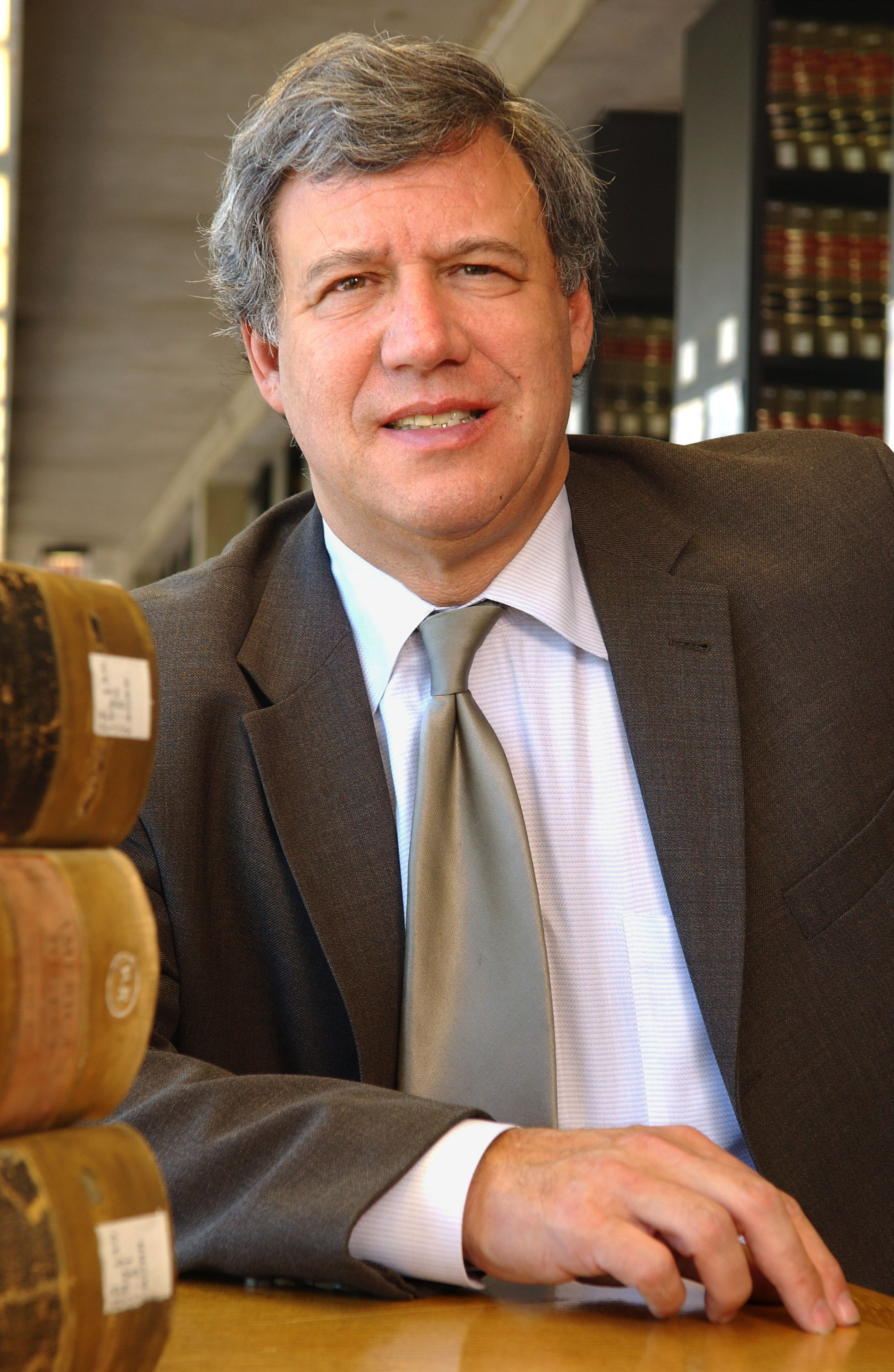![[Chronicle]](/images/sidebar_header_oct06.gif)
Vol. 27 No. 2
current issue
archive / search
contact
Past Opine interviews:
Lauren Berlant
Stephen Berry
John Boyer
David Cohen
Jerry Coyne
John Cunningham
Richard Epstein
John Frederick
Henry Frisch
Austan Goolsbee
Bernard Harcourt
Greg Jackson
Martin Marty
Martha Nussbaum
Raymond Pierrehumbert
José Quintáns
Jan-Marino Ramirez
Saskia Sassen
William Sewell
Herman Sinaiko
Geoffrey Stone
Cass Sunstein
Simon Swordy
Opine: Geoffrey Stone
 Geoffrey Stone | |
Geoffrey Stone is the Harry Kalven Jr. Distinguished Service Professor in the Law School and the College. His most current work, Rights at War, is forthcoming from the University of Pennsylvania Press. His 2004 book, Perilous Times: Free Speech in Wartime from the Sedition Act of 1798 to the War on Terrorism, won many accolades and book awards.
What book should everyone read and why?
William L. Shirer’s The Rise and Fall of the Third Reich. They should read this so they understand that it can happen here and that they need to really care about civil liberties.
What American citizen, who is a well-known public figure, is a role model for America’s younger generation? What qualities does this individual possess that are worthy of being emulated?
Rosa Parks. She had the courage to do the right thing at the right time because it was the right thing to do.
What advice would you give to your best student who plans to follow a similar career path you have followed in teaching and research?
“Don't be afraid to take risks. If you are truly my ‘best student,’ you have nothing to fear.”
How has information technology changed your life?
It has enabled me to stay in touch with literally hundreds of people with whom I would otherwise have lost contact. This has profoundly enriched my life.
Think of a renowned scholar from the past who added great value to your area of study. What would this person think of the advances that recently have been made in this field?
One of my teachers and mentors at the University of Chicago was Harry Kalven, who was among the most influential thinkers about freedom of speech in American history. I believe Kalven would think that, on balance, we have made substantial progress in protecting free expression in the United States since his untimely death in 1974.
What lesson or lessons has America not yet learned from its history?
America has not yet sufficiently learned that the single most important American value is empathy. Although we have made great progress along many dimensions, far too many Americans still fail to make a conscious effort to put themselves in the minds of others and to see the world through their eyes.
In your opinion, where do science and art meet?
On Ellis Avenue.
What are the three most important things to apply when making an argument for something you believe in—(e.g., academic freedom).
Honesty, rigor, and never forgetting that being able to win an argument is not the same thing as being right.
If you could choose any three University professors and give them a one-year sabbatical together to solve a problem, develop a theory or make a discovery, who would they be and what task would you assign them?
I don’t believe in sabbaticals. Teaching enhances thinking and scholarship; it does not detract from it. Putting that aside, I would ask Hanna Gray, Gary Becker and Stuart Rice -- three of the smartest and most thoughtful scholars I know -- to work together to define the scope and limits of "academic freedom."